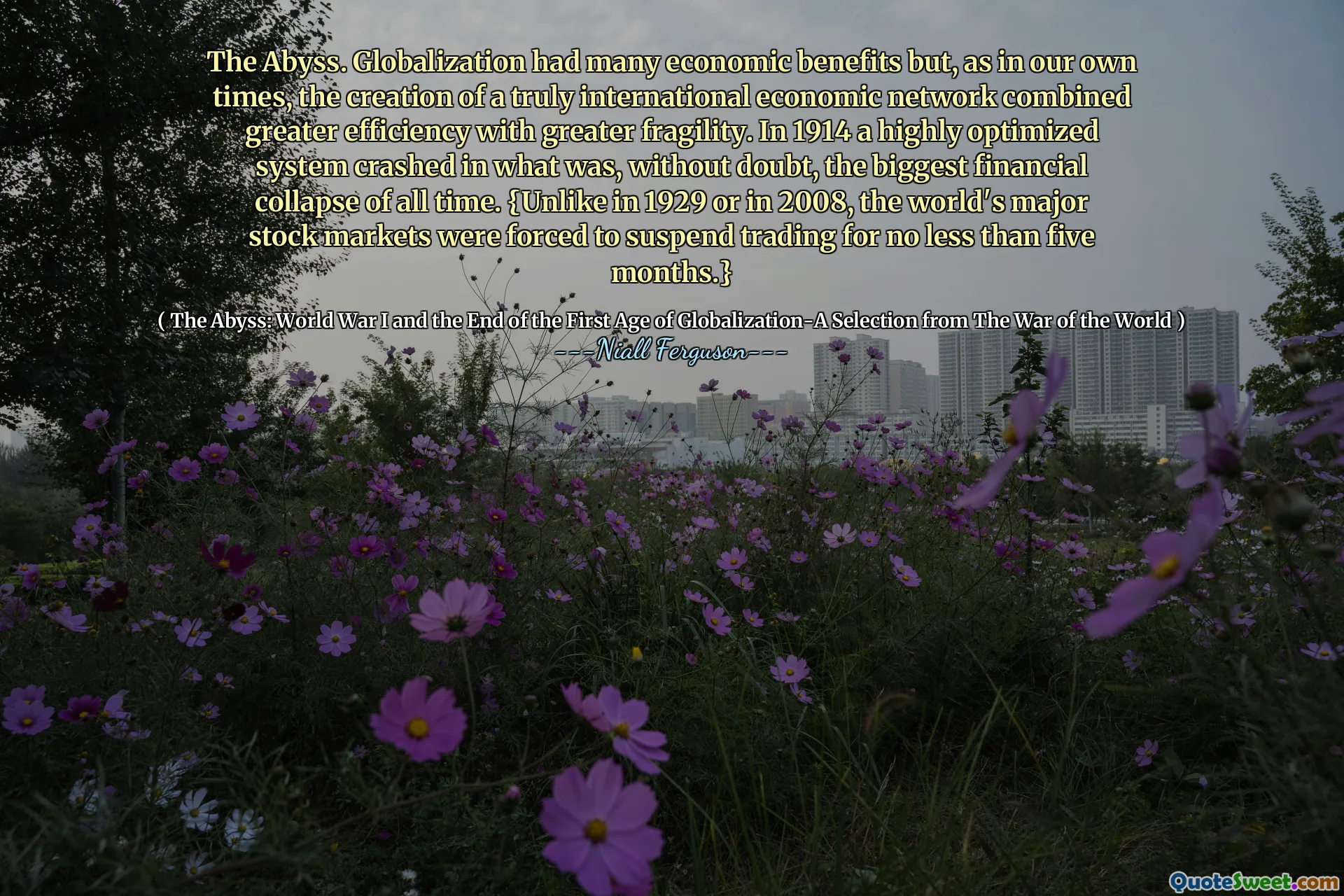
The Abyss. Globalization had many economic benefits but, as in our own times, the creation of a truly international economic network combined greater efficiency with greater fragility. In 1914 a highly optimized system crashed in what was, without doubt, the biggest financial collapse of all time. {Unlike in 1929 or in 2008, the world's major stock markets were forced to suspend trading for no less than five months.}
Niall Ferguson's "The Abyss" explores the dual nature of globalization, highlighting its economic advantages alongside its inherent vulnerabilities. The interconnectedness brought about by a global economic network created efficiencies but also increased the risks of catastrophic failure. This perspective is particularly relevant today, as modern economies continue to grapple with similar challenges.
The book draws parallels to the financial collapse of 1914, a pivotal moment in history when the highly optimized system imploded, resulting in unprecedented consequences. Unlike the subsequent market crashes in 1929 and 2008, the 1914 collapse led to a five-month suspension of trading across the world's major stock markets, underscoring the magnitude of the crisis.











